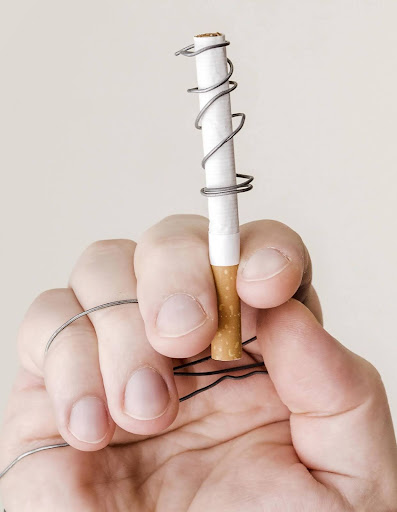Understanding addictive behaviors and patterns is essential for helping someone you love deal with an addiction to drugs or alcohol. Addictions can alter a person’s mind and behavior, so it is important to seek help as soon as possible. In this article, Wellbrook Recovery explores why people use drugs, how to understand an addict, and how addiction works.
Addiction and its Prevalence
What is an addiction? An addiction is a habit that becomes uncontrollable and begins to affect your day-to-day life. Struggling with addiction creates conflict with work or school responsibilities, challenges maintaining relationships, and causes financial struggles. Addiction can involve substances like alcohol and drugs, or compulsive behaviors like gambling or internet use. Addictions are chronic diseases of the brain that could potentially affect anyone.
Why Do People Use Drugs?
Addiction is an illness that could affect anyone at any age. Addictions are generally not caused by one factor but a combination of several causes. The following are some of the risk factors for drug or alcohol abuse:
- Escape: Alcohol and drugs can be a powerful tool for escaping from reality or to cope with pain. Relying on a substance as a coping mechanism can lead to addiction.
- Genetics: Genetics can cause a predisposition to substance abuse. Families with a history of addiction are more likely to develop an addiction (although it is not guaranteed).
- Environment: Being surrounded by friends or family who use drugs or alcohol increases the risks of misuse and addiction. Such an environment also facilitates the experimentation of drugs, which can easily lead to addiction.
- Experiment: Peer pressure plays a significant role in the experimentation of drugs. Social pressure or curiosity can drive the start of negative patterns with drug and alcohol use.
- Development: Access to drugs as a teenager and young adult can cause lasting damage and increase the chances of addictions forming because the brain is still in its essential developmental stage.
- Mental Health: Substance use disorders and other mental illnesses often come hand-in-hand. Studies show that addictions can form as a result of depression, stress, anxiety, trauma, or other mental health challenges.
Importance of Understanding Addiction
If you don’t personally struggle with addiction, it is hard to understand what someone suffering from addiction is going through. An outsider may question how a healthy person can destroy their own lives and their families by using alcohol and drugs. It seems irrational.
Getting into the mind of an addict and recognizing the struggles that addicts face daily can help you to be understanding and supportive. The first step is understanding that their brain works differently, although it may not seem like it to others. Addiction actually alters the brain by “hacking into the brain’s communication system,” causing a person to act out of character and skewing their judgment.
To understand a person with an addiction, you need first to understand the addiction.
What Does Addiction Feel Like?
While every individual’s experience with addiction is different, most addicts struggle with feelings of helplessness and desperation. They are in a battle with themselves, falling deeper into self-destruction, but unable to stop the downward spiral. A pervasive feature of addiction is feeling a loss of control. Intense cravings take over an addict’s life, leaving a person feeling powerless in the face of the addictive substance or behavior.
Addict Brain vs Normal Brain
Studies have shown that the brain of a person with an addiction is different from a normal brain. Because of this, it may be hard for an outsider, or even the addict themselves, to understand what is driving an addict’s seemingly irrational behavior.
The human brain is wired to desire pleasure. This natural reward system drives us to find things that make us happy and feel good. Therefore, when someone finds something pleasurable, their brain naturally tells them they want more. With alcohol and drugs, the experience makes a person feel good, even though it may not be good. The addict brain associates these substances with something pleasurable, causing the brain to develop a dependency on the substance. This is where the brain changes, making the person feel like they can’t function without the substance, creating a physical and emotional attachment to it.
Is Addiction a Choice?
Simply speaking, the first use of drugs and alcohol may be a choice. However, stopping is challenging even after the first use. Once a dependency has developed, there is no longer a question of ‘choice.’ A person cannot just decide to stop because of the withdrawal symptoms it will cause, and addiction treatment is required.

Is Addiction a Disease or a Choice?
Addiction is a disease that changes the brain’s function and structure and is not a result of moral weakness. Addiction is also not something you can just “snap out” of, but an illness that needs proper treatment. This disease is brought on by many reasons, including mental health challenges, genetics, and environmental factors. Addictions are complex and there are a multitude of factors that need to be addressed in understanding the mind of an addict.
The Challenges of Addiction
Prolonged drug and alcohol misuse affects short and long-term health. Health consequences can vary depending on the type of drugs used, how often it is taken, and overall health. Substance addiction can harm the body by weakening the immune system, making it more susceptible to illnesses and infections. It can also cause:
- Heart conditions
- Appetite loss
- Lung disease
- Liver damage
- Liver failure
- Memory problems
Additionally, substance misuse can lead to mental health issues, such as:
- Anxiety
- Paranoia
- Depression
Addiction also has a numbing effect that blocks out emotion. We experience emotions to help us recognize positive vs negative situations. The continuous use of substances further numbs emotions, blocking the way the body naturally experiences events.
How To Understand an Addict
Understanding an addict involves seeing how addiction shapes behavior, choices, and perceptions. Addicts may behave irrationally because it distorts their ability to think or feel normally. However, these are usually just symptoms of addiction and not a reflection of the person’s character.
An intervention may be necessary if you have a friend or family member who is suffering from a drug or alcohol addiction to encourage them to get the help they need. It is important to be supportive and show your empathy and patience throughout the process. Understanding the effects of addiction can help you overlook their negative behaviors and focus on fostering a safe and non-judgmental environment where the issue can be discussed openly.
Why Is Addiction So Hard to Overcome?
It is not so simple for someone with an addiction to stop their negative behavioral patterns. Besides the compulsion to continue abusing drugs or alcohol, addicts commonly experience mild to severe withdrawal symptoms. It is, therefore, vital for them to receive professional treatment, such as medical detox and residential inpatient rehab, that can safely and effectively help them. Note that it is common for people with an addiction to experience a relapse, sometimes multiple times.
Wellbrook Recovery Understands Why People Use Drugs
Acknowledging an addict’s struggle and understanding the root of their addiction is step one in supporting them and getting them the help that they need. It’s important to recognize that addiction is not a choice but a chronic disease that could affect anyone at any age or stage of life. This knowledge can help you be more patient and empathetic toward someone struggling. Addictions rewire the brain, affecting a person’s health physically and mentally.
Overcoming an addiction is not straightforward or simple, and it requires professional help. They need someone who can help tailor their treatment plan to suit their unique situation, including mental health, environment, and genetics. At Wellbrook Recovery, we offer family substance abuse therapy. These sessions are an important source of healing for both individuals struggling with addiction and their family members. By working on communication skills and gaining a deep understanding of family dynamics, you can help provide a strong support system for your loved one on their road to sobriety. Reach out to Wellbrook Recovery for more information on how to support someone you love throughout their recovery process, encourage healing, and create long-lasting change.










